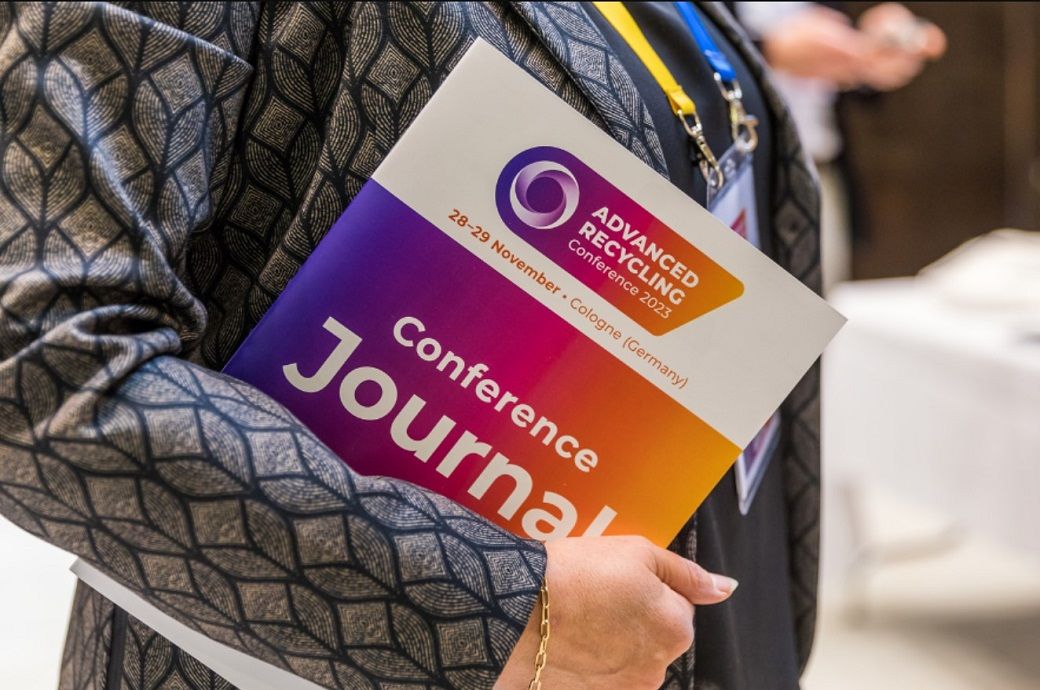
The ARC took place on November 28-29, 2023, in Cologne, Germany, and set several records in terms of the number of participants as well as presentations, posters, and exhibitors. The astonishing response not only reflects the growing interest and commitment of the global industrial community to advanced recycling technologies, but also highlights the increasing need for enabling policies and supportive measures in the wake of rising recycling quotas.
The programme of this year's international conference addressed a wide range of waste streams from plastics and PET to composites and textiles. Participants were offered innovative technological solutions for various key issues that reach far beyond chemical recycling, organiser Nova-Institute said in a press release.
Numerous presentations and discussion panels highlighted the industry’s latest developments in this context. From pyrolysis and other thermochemical approaches to the dissolution of plastics, gasification and depolymerisation through to the versatility of extruders and pre- and post-treatment, the conference offered comprehensive insights into the wide range of chemical recycling technologies.
Other sessions such as ‘Markets and Policy’ and ‘LCA’ provided information on relevant sustainability aspects and accounting methods that will prepare industries for recycling quotas of up to 70 per cent for packaging materials and 55 per cent for plastics. Numerous exhibitors presented their innovative services, strategies, and technology solutions, while participants labelled the continuation of ARC a complete success.
For the first time Lars Krause from the nova-Institute presented the institute’s latest study results on the worldwide capacities of advanced recycling to a larger audience. The publication will be published/available in spring 2024 as part of an update of an earlier study on advanced recycling. In global comparison, Europe currently represents the leading area of chemical recycling. Whether it is the number of technology providers, the amount of installed and operating plants or the availability of input and output capacities for materials and chemicals based on renewable carbon, Europe is demonstrating its considerable know-how, pioneering development, and potential for the future.
Currently a majority of Europe’s 358 kt per annum input capacity of advanced recycling results from pyrolysis, followed by solvolysis, dissolution, enzymolysis, and gasification. Overall, Europe covers an impressive percentage of 36 per cent of the installed global production capacity of polymers, monomers, naphtha, and Secondary Valuable Chemicals (SVC). Here, the product-shares and capacities of advanced recycling mirror Europe’s strong trend to circularity, surpassing other regions that show higher product-shares of fuels & energy, while shares of polymers, monomers, and naphtha are lower.
In the upcoming five years the sector expects a strong increase of Europe’s advanced recycling production capacities for polymers, monomers, and naphtha, likely to exceed 500 kt per annum after 2027. The downside of this initially positive scenario is the impact of inadequate political framework conditions and supporting measures. Until these are strategically developed or brought to life, investments in new plants or the upscaling of existing ones will fail to materialise.
At this stage, expected growth rates seem insufficient to fulfil the existing recycling quotas or to satisfy the currently developed mandatory recycled content in plastic packaging and beyond. These findings underscore the ongoing challenges, emphasising the crucial role of political decision-makers in unlocking and maximising Europe's existing potential. They further highlight the imperative for swift and strategic action to capitalise on these opportunities before they diminish, making this a pivotal moment for decisive political engagement.
The industry needs physical recycling based on dissolution as a strong ally, which, together with chemical recycling, will result in a cohesive concept of closed and open recycling loops, following the waste hierarchy. Speakers from the field of physical recycling welcomed the fact that the ARC 2023 offered a clear distinction from chemical recycling. At the same time, it provided an equal forum for physical recycling solutions, becoming one of the few events to follow this concept. The audience response validated this approach, proving the lack of awareness for dissolution technology providers. Changes and progress are required, in order to realise a complementary approach in which all advanced recycling technologies are implemented to unlock the maximum value out of plastic waste streams.
The ARC 2023 left participants inspired and motivated to strive for new and best possible recycling solutions. All introduced technologies prove that industries can successfully incorporate smart solutions, effective recycling methods, and renewable material into their processes and hereby close the carbon loop for a sustainable future. Advanced recycling not only offers recycling solutions for difficult waste streams, but also presents a key source for a variety of renewable raw materials. It hereby secures the renewable carbon supply for the chemical and materials industry at large. This year’s programme showed that plenty more developments lay ahead of advanced recycling.
The conference will extend its continuum with the forthcoming edition, scheduled for November 20-21, 2024, in Cologne, Germany and online. An experienced team of experts at nova-Institute will ensure a positive and enriching event experience. The conference will further evolve with the help of feedback received and evaluated from participants and speakers to develop in line with sector’s requirements.
ALCHEMPro News Desk (DP)
Receive daily prices and market insights straight to your inbox. Subscribe to AlchemPro Weekly!